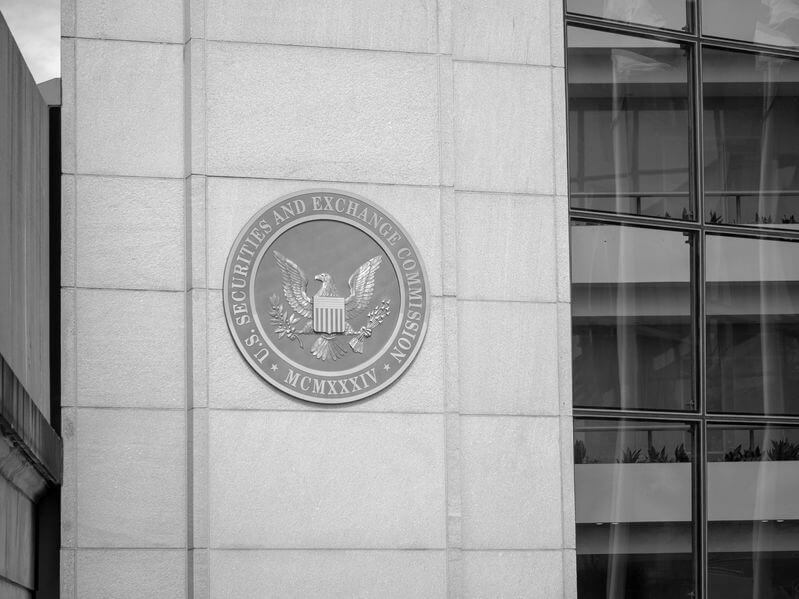The U.S. Securities Exchange Commission is trying to change the rules that govern shareholder proposals and sustainable finance luminaries are pushing back.
In November, the independent federal government agency whose stated mission is to “protect investors, maintain fair, orderly, and efficient markets, and facilitate capital formation” announced that it would be toughening the rules surrounding shareholder resolutions – a critical legal tool available to activist shareholders looking to propose corporate changes. The following is a letter signed by a number of pension and sustainable finance experts challenging the silence from large institutional investors surrounding the rule change.
As the SEC changes “the rules of the game” for material risks like ESG, big institutional investors must act before it is too late
Investors rely on the proxy process in the United States as the main mechanism to bring both strategic and material environmental, social and governance (ESG) risks and opportunities to the attention of corporate boards. But the SEC (Securities and Exchange Commission) is now proposing to degrade this key tool such that it will seriously undermine corporate accountability. U.S. institutional investors’ silence on this issue will hurt them and, more importantly, their clients in the long run. They must speak up now before their fiduciary duty is further degraded.
The SEC wants to curtail the proxy process by increasing ownership requirements and thresholds of support to allow resolutions to be submitted to general meetings in subsequent years. These measures sound technical and dull, but their impact could be significant.
The rules would, in effect, exclude many proposals on topics ranging from executive stock sales to political spending and from board diversity to climate change. Data shared with Standard & Poor’s by the Sustainable Investments Institute suggests that one-third of proposals voted on from 2010 to 2019 would have been excluded from resubmission by the new rules.
The proposed rules would make it significantly harder for shareholders to resubmit proposals, but many observe that resubmitting proposals is essential to building support for and understanding of the issues, as was the case for an issue once considered fringe, like climate change, which has now become “a defining factor in companies’ long-term prospects,” as BlackRock CEO Larry Fink said last week.
Disappointingly, the SEC’s actions also contradict the Business Roundtable, which in August 2019 broadened its definition of corporate purpose to give more attention to the interests of stakeholders beyond shareholders. They stand in contrast to the rising number of CEOs speaking out about the need to address the loss in public confidence in capitalism and the actions of companies like Microsoft, which recently detailed its concrete plans to become carbon negative.
The SEC comment period ends February 3. Preventable Surprises reviewed comments submitted to date in the current comment period and in the policy development process. The vast majority of U.S. fund managers appear to be either actively or passively supporting this specific change, whether through silence or by letting business associations speak for them.
Wellington Management Company and MFS Investment Management are commendable exceptions, having signed on to a letter coordinated by the United Nations’ Principles for Responsible Investment (PRI) that states:
“The proposed rules stand in direct contradiction of the SEC’s stated purpose, to protect investors. Ultimately, they would put more power into the hands of CEOs and corporate boards, weaken shareholder protection, especially for smaller investors, and diminish basic transparency and corporate accountability. They are in effect a form of corporate voter suppression to disenfranchise investors who seek to actively engage with companies on ESG matters, climate risks, sustainability and long-term value creation.”
They are joined on this letter by an impressive group of (non-American) asset owners and managers.
In private discussions, managers often come up with a variety of reasons for not publicly challenging the SEC proposal. Some protest that they have already made their views clear by taking part in the SEC roundtable or through direct conversations with SEC officials. Others claim that they don’t comment publicly on policy matters, relying on trade groups to speak for them. Still others say they do not sign on to group letters and would rather submit their own letters. But the vast majority have neither written their own letter nor signed on to others.
The unspoken reality could be that senior executives of these mega-managers might be happy if ESG resolutions went away, as their voting record consistently suggests (many of the largest U.S. index funds have, for instance, consistently opposed shareholder proposals related to climate change).
Regardless, letting trade associations speak for them does not do them or anyone else any favours. However, if ESG resolutions are restricted, it will negatively affect investors’ ability to fulfill their fiduciary duties by investing in and positively influencing the companies they own.
It’s worth remembering that shareholder resolutions and the proxy voting process are the only existing communication channel between a board and its company’s broad shareholder base that is not controlled by management. In a fast-changing world, companies will be worse off if their boards are insulated by barriers to regular and unbiased feedback from the shareholder base, especially on evolving sustainability issues that will influence future capital flows.
Thinking ahead, fund managers should realize that their silence will hurt their bottom line:
- 1) Asset owners – their clients – will continue to demand to see positive ESG changes in the companies they invest in and will expect these big managers to submit resolutions on their behalf or will do so themselves (and the managers may still have to bear the costs). Otherwise, they might resort to other, more radical means: voting against corporate directors more often or finding new managers.
- 2) Asset owners will see the U.S. as too weak on corporate governance because of corporate influence over regulators while viewing large U.S. fund managers as being too conflicted to protect the interests of asset owners.
- 3) Silence around these proposed SEC changes positions U.S. fund managers as behind the curve, further hurting their ability to attract talent.
A proactive stance in favour of transparency and stakeholder engagement will instead help their bottom line. Capital is liquid and prefers to invest in countries where investors can influence the companies they invest in. By depriving themselves of this ability, U.S. institutional investors are doing a disservice to their long-term business model, no matter the relative depth of U.S. capital markets.
With less than a week left to submit responses, we urge institutional managers, including BlackRock, State Street, JPMorgan, T. Rowe Price, Nuveen and Morgan Stanley – all of which have made strong commitments to climate or ESG – to be transparent about their positions on this matter.
They could join the International Corporate Governance Network in noting:
“The number of shareholder proposals in the U.S. has remained consistent over years while the level of support for shareholder proposals has increased, demonstrating growing recognition of the importance of the matters raised by such proposals among a broader spectrum of investors. We are not aware of any “abuses” of the existing rules by shareholders.”
Or they could join Theresa Whitmarsh of the Washington State Investment Board in observing:
“Systems for proxy voting and shareholder proposals are not broken. Granted, the plumbing system could benefit from careful updates, but the SEC’s proposed overhaul is overkill and does not address the system’s plumbing.”
Or they could join the Wellington Management Company and MFS Investment Management in signing the PRI-coordinated letter.
Or they could write their own.
To quote SEC commissioner Robert Jackson, “Whatever problems plague corporate America today, too much accountability is not one of them.”
We simply wish that institutional managers make their views equally explicit.
Signed,
Keith P. Ambachtsheer, Director Emeritus, International Centre for Pension Management, Rotman School of Management, University of Toronto
Bill Baue, Senior Director, r3.0 (Redesign for Resilience & Regeneration)
Lauren Compere, Managing Director, Boston Common Asset Management
Toby Heaps, CEO, Corporate Knights
Margaret Heffernan
Keith L. Johnson, Chair, Reinhart Institutional Investor Services
Jon Lukomnik
Nell Minow, Vice Chair, ValueEdge Advisors
Tom O. Murtha, Lecturer, Columbia University
Mike Musuraca, Chair, Preventable Surprises
Brynn O’Brien, Executive Director, Australasian Centre for Corporate Responsibility
Jérôme Tagger, CEO, Preventable Surprises
Raj Thamotheram, Founder and Senior Advisor, Preventable Surprises
Gabriel Thoumi, CFA, FRM
Michele Wucker, CEO, Gray Rhino & Company







